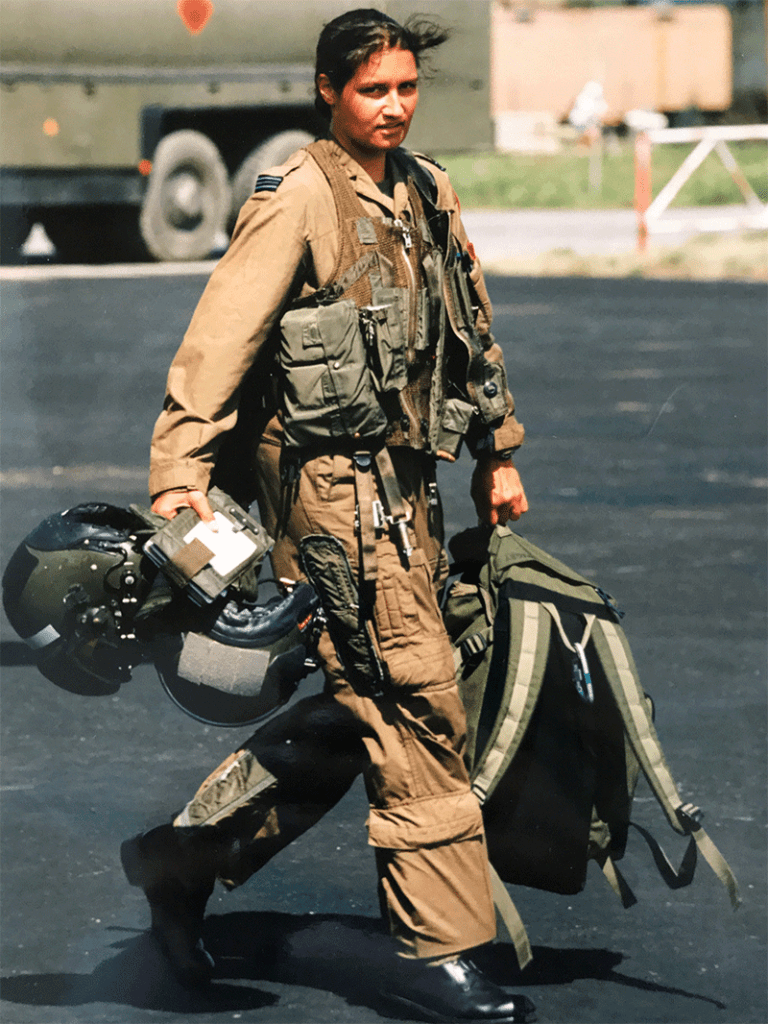
Jackie has had a pretty varied career, first as a helicopter pilot in the RAF, then as a consultant in the public sector, then in operations in the technology sector and now helping clients deliver complex rail infrastructure programmes globally.
She joined Mace Group in 2021 as part of the leadership team building the High-Speed Station and upgraded London Underground connections for HS2 at Euston, London. Her team was responsible for paving the way for construction through engaging with local communities, local authorities and technical partners to gain approvals for works to take place. She transferred in the Summer of 2023 to Canada to help the client deliver CA$70 billion rail enhancements and is responsible for building client capability to deliver.
Jackie believes there is no such word as ‘can’t’ and her advice is to be aware of opportunities which can arise in unexpected ways. As a mum to a son, she’d welcome an inclusive world where opportunities exist for everyone. She counts herself lucky that at Mace, she really can be herself – that’s not always been the case.
She lives in Toronto with her husband, Scott, her son Harry, a Team GB alpine skier at Apex2100 International Ski Academy in France, and her dog, Haggis, a black, miniature labradoodle, great for therapy, especially during COVID!
She loves being outdoors, hiking, dog walking and skiing and if indoors, she’ll be in the pub having a beer and watching sport!
Tell us about yourself, your background, and your current role.
Hi I’m Jackie Duncan, I am a mum, wife and operations director for Mace Group, delivering organisation, leadership and team capability consulting services for clients delivering major infrastructure programmes. In my ‘spare’ time, I’m the Global lead for our behaviours champion network and the co-chair of the Military at Mace network.
My family and I are now living in Canada having moved with Mace, in August 2023 but my career started a fair while ago now in the RAF. I was the first female Chinook helicopter pilot and instructor and following promotion was in operations in HQ during the second Gulf War and my responsibility was to look after the deployment to, and sustainment and return of air force people and equipment from Kuwait. I was awarded an MBE for the work we did then.

Did you ever sit down and plan your career?
No never. Well once, when I realised at Microsoft that it wasn’t the team and company for me. I had to take stock then and reflected with some mentors about the things I loved to do and felt connected with. I realised that it was building things with teams where I really thrived. So I headed back to rail infrastructure from technology. Really all organisations now are technology-driven, or getting there. I love being able to drive some of that innovation too, pulling together lots of experiences from my career to do better things every day.
When you began your career, did you ever imagine that you would be in a leadership role?
That’s a tricky one because I joined the military as an officer so I suppose without thinking about it I did know that I was going to have a leadership role. I’d captained hockey teams and houses at school so it wasn’t new to me, I just got better at doing it!
How do you stay motivated and inspired as a leader?
I read a lot. I use apps like Headway and listen to people like Simon Sinek, Steven Bartlett and Rory Stewart. People motivate me though. It’s great to see the people around me develop and if I can be a small positive part of their journey, that makes me happy.
Have you ever felt the imposter syndrome, and if so how did you navigate your way through it?
Yes. Always. But so many people talk about imposter syndrome that I wonder if it’s merely a side effect of adrenaline! I navigate it by doing reconnaissance and preparing really well so that I can do whatever it is in my sleep. That way if something left field comes up, I have the capacity to adapt. Learning to fly taught me that! Taking deep breaths also works and then going for it. I like Amy Cuddy’s TED talk on this, she really nails it.
I did find as I got to peri-menopause that I was a bit more paranoid about whether I can really do it – it’s taken more effort since then to keep that imposter syndrome at bay.
I’d also say that knowing and feeling someone at home and at work has your back is really important. Simon Sinek says that gives you courage. I couldn’t agree more. I definitely feel supported by my family and many people at Mace.
What advice would you give to other women who are struggling with imposter syndrome?
Find someone you can talk to. Read Lean In by Sheryl Sandberg. Work out why you feel it. Is it you or are others making you feel that way? Ask for someone to advocate for you in certain situations. Prepare.
Do you think women face unique challenges in the workplace? If so, what are those challenges and how can we overcome them?
I’m not sure women face unique challenges or whether everyone faces challenges that are unique to them. If something is happening that you don’t like, speak up. If you can’t solve it, maybe the culture isn’t right and it’s time to reflect and move on.
What are some of the biggest challenges you’ve faced in your career? How did you overcome them?
Biggest challenge. I failed my first combat ready check. I was the first pilot to go straight through training on to the Chinook, most of the others that had gone before were from other aircraft types so they had lots of flying hours’ experience to fall back on. It was really the first time I’d not achieved something I’d set my mind to. So it was pretty devastating and to top it off, all the senior squadron staff disappeared for three days trying to work out what to do. I felt very alone. But then the standards officer emerged and we went flying for three days just him and me. I’d learned so much from the original experience and with his mentorship, I passed my re-test within the month.
What are some patterns you’ve noticed over the years about women at work, and things they could be doing better to advance their careers?
I think the key one for me is that your bosses, whatever gender, will make assumptions about your ambition. You need to take control of your career, stay on top of the opportunities, build and nurture your network and let people know what you are looking for. As your priorities and motivations change, keep the people you trust in the loop.
What advice would you give to the next generation of female leaders?
Go for it. Respect everyone including yourself. Be yourself. Find people and work that inspire you to do better every day.
Conclusion
Jackie Duncan’s journey from RAF helicopter pilot to Operations Director at Mace Group exemplifies resilience, adaptability, and a relentless pursuit of excellence. Her career, spanning military service, public sector consultancy, and leadership in technology and infrastructure, demonstrates the value of embracing diverse opportunities and continuous learning.
Jackie’s philosophy of seizing unexpected opportunities and her advocacy for an inclusive world where everyone has equal chances to succeed reflect her commitment to empowering others. Her experience with imposter syndrome and the strategies she employs to overcome it—preparation, support networks, and self-reflection—offer invaluable insights for women facing similar challenges.
Her advice to women in the workplace is clear: take control of your career, articulate your ambitions, and nurture your networks. As a leader, Jackie remains motivated by the growth and development of those around her, drawing inspiration from influential thinkers and the people she works with.
In her current role at Mace, Jackie continues to drive innovation and build capability, now on a global scale with CA$70 billion rail enhancements in Canada. Her story is a testament to the power of perseverance, the importance of supportive environments, and the impact of strong, inclusive leadership. As she puts it, “Go for it. Respect everyone including yourself. Be yourself. Find people and work that inspire you to do better every day.”





Responses